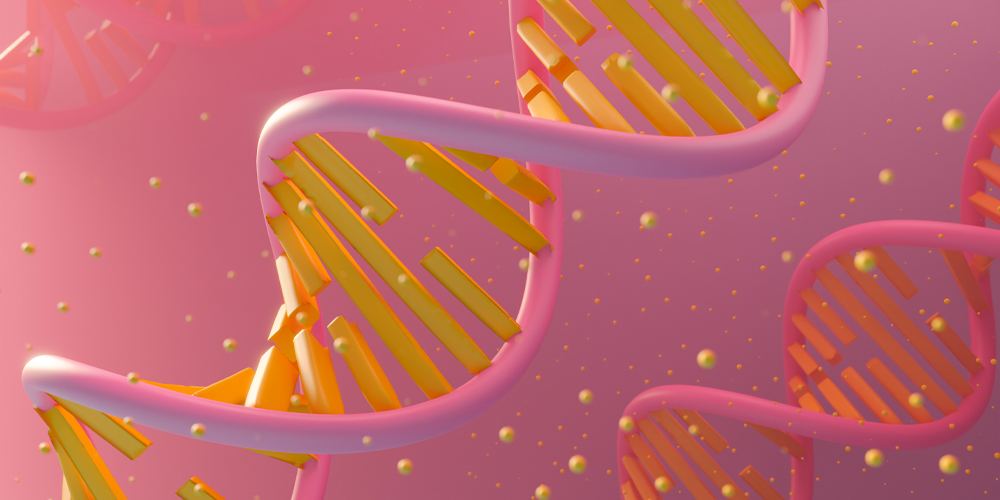Biotechnology has become one of the most transformative fields in medicine today. It’s shaping the future of healthcare by providing innovative solutions to treat diseases, improve patient outcomes, and even extend life expectancy. In this article, we will explore the various biotech innovations that are revolutionizing the way we approach health and medicine. These advancements offer new possibilities for curing genetic disorders, personalized treatments, and even enhancing the body’s natural defense mechanisms.
What is Biotechnology?
Biotechnology involves using biological systems and organisms to develop products and technologies that serve human needs. In the healthcare sector, biotechnology focuses on the development of new medical treatments, diagnostics, and therapies that can significantly improve health outcomes. The ability to manipulate genetic material at the molecular level has led to significant breakthroughs, which are transforming traditional approaches to medicine.
In essence, biotech allows us to alter the biological structures of cells and organisms to enhance their functionality. This has paved the way for innovations like gene therapy, personalized medicine, and regenerative treatments, all of which promise to improve the quality of healthcare worldwide.
Key Biotech Innovations in Health and Medicine
The impact of biotechnology on health and medicine is undeniable. Below are some of the most groundbreaking biotech innovations currently changing the healthcare landscape:
1. Gene Editing with CRISPR
CRISPR-Cas9 is one of the most significant biotech innovations of the 21st century. This gene-editing technology allows scientists to make precise alterations to DNA, opening new doors for curing genetic disorders like sickle cell anemia, cystic fibrosis, and Huntington’s disease. By editing the genes responsible for these conditions, it’s now possible to potentially eradicate them at their source.
Furthermore, CRISPR technology has shown promise in cancer treatment. Researchers are using CRISPR to edit immune cells, allowing them to more effectively target and destroy cancer cells. This technology could revolutionize cancer therapies, offering a more personalized and less toxic treatment approach.

2. Personalized Medicine
Personalized medicine, also known as precision medicine, tailors healthcare treatments to individual patients based on their genetic profile. Unlike traditional “one-size-fits-all” treatments, personalized medicine considers how each person’s genetic makeup affects their response to various drugs and treatments.
One of the most notable areas where personalized medicine is making a significant impact is in oncology. By analyzing the genetic mutations within cancerous tumors, doctors can now select targeted therapies that directly attack the tumor’s genetic weaknesses, often resulting in better treatment outcomes and fewer side effects. This approach is more effective and minimizes the use of broad-spectrum chemotherapy.
Furthermore, pharmacogenomics, the study of how genes affect drug responses, is also part of personalized medicine. It ensures that patients receive medications that are most compatible with their genetic makeup, reducing adverse drug reactions and improving therapeutic outcomes.
3. Immunotherapy: Harnessing the Body’s Immune System
Immunotherapy is a breakthrough treatment that uses the body’s immune system to fight cancer. Traditionally, the immune system’s ability to recognize and attack cancer cells is weak. However, immunotherapy enhances the immune system’s natural ability to identify and destroy cancer cells.
Drugs such as pembrolizumab (Keytruda) and nivolumab (Opdivo) are immune checkpoint inhibitors that help the immune system overcome the protective shields around cancer cells. This allows the immune system to recognize and attack the cancer more effectively. Immunotherapy has shown significant success in treating cancers such as melanoma, lung cancer, and blood cancers like leukemia and lymphoma.
Unlike conventional treatments such as chemotherapy, immunotherapy is less toxic and often results in longer-term remissions. This shift toward immunotherapy is making cancer treatment more effective and accessible to a broader range of patients.
4. Stem Cell Therapy
Stem cell therapy is one of the most promising advancements in regenerative medicine. Stem cells are unique because they can develop into many different types of cells. This ability makes them highly valuable for repairing damaged tissues and organs.
Stem cell therapy is already being used to treat conditions such as leukemia and lymphoma through bone marrow transplants. Additionally, stem cells hold the potential to treat a wide range of degenerative diseases, such as Parkinson’s disease, spinal cord injuries, and heart disease. By regenerating damaged tissue or replacing lost cells, stem cell therapies could one day offer cures for diseases that are currently considered untreatable.
While still in the experimental phase for many applications, stem cell therapies represent a huge leap forward in medical science, offering the potential for life-changing treatments in the near future.
5. Biologic Drugs: Targeted Treatment Options
Biologics are a class of drugs derived from living organisms. They are used to treat a variety of medical conditions, including autoimmune diseases, cancers, and chronic inflammatory conditions. Unlike traditional drugs, which are synthesized chemically, biologics are created from proteins or other biological materials that are produced by living cells.
Some well-known biologic drugs include Humira (adalimumab) for rheumatoid arthritis and Herceptin (trastuzumab) for breast cancer. These drugs work by targeting specific molecules within the body, offering a more focused treatment approach that can minimize side effects compared to conventional medications.
Biologics are revolutionizing the treatment of conditions that were previously difficult to manage. For example, monoclonal antibodies are being used to treat certain cancers by specifically targeting cancer cells, while leaving healthy cells intact. This targeted therapy is helping to increase the effectiveness of treatment and reduce the overall impact on the patient’s body.
6. Organ-on-a-Chip Technology
Organ-on-a-chip technology is an exciting development that mimics the behavior of human organs in a laboratory setting. By creating small, bioengineered chips that replicate the function of organs such as the heart, lungs, or liver, scientists can better understand how diseases progress and how drugs affect the body.
This technology offers a more efficient and ethical alternative to animal testing, providing a better understanding of human physiology and disease. It’s being used to test drug toxicity and efficacy, which can expedite the development of new medications and reduce the need for traditional animal experiments.
Organ-on-a-chip technology holds great promise for speeding up drug discovery, enhancing our understanding of disease mechanisms, and ultimately improving patient outcomes.

Challenges and Ethical Considerations in Biotech
Despite the remarkable progress in biotechnology, several challenges remain. These challenges primarily revolve around regulatory hurdles, ethical concerns, and equitable access to new treatments.
1. Regulatory Challenges
Biotech innovations, especially those that involve gene editing or stem cell research, often face strict regulatory scrutiny. Regulatory agencies like the FDA must ensure that these treatments are both safe and effective before they are approved for widespread use. While this protects patients, it can also delay access to life-saving therapies.
2. Ethical Concerns
Gene editing technologies like CRISPR raise significant ethical questions. Some of these concerns revolve around the potential for human germline editing, which could lead to unintended genetic changes passed down to future generations. There are also concerns about the use of genetic editing for non-therapeutic purposes, such as creating “designer babies.” It’s important for regulatory bodies to establish clear ethical guidelines to prevent misuse of these technologies.
3. Access and Equity in Healthcare
One of the biggest challenges biotech faces is ensuring that its innovations are accessible to everyone. Many of the cutting-edge treatments, such as gene therapies and biologic drugs, are expensive, raising concerns about equity. Patients in low- and middle-income countries may not have access to these life-saving treatments, which could create a divide in healthcare outcomes between different regions and socioeconomic groups.
It’s crucial for governments, healthcare providers, and pharmaceutical companies to work together to make sure that new biotech advancements are affordable and accessible to all people, regardless of their income or geographical location.
Conclusion: The Future of Biotechnology in Medicine
Biotech innovations are changing the face of healthcare. From gene editing and personalized medicine to stem cell therapies and biologic drugs, biotechnology is offering new and more effective ways to treat diseases and improve patient care. While challenges remain, including ethical concerns and access to treatments, the future of biotech in medicine looks bright. With continued research and careful regulation, biotech innovations will continue to transform healthcare for generations to come.




